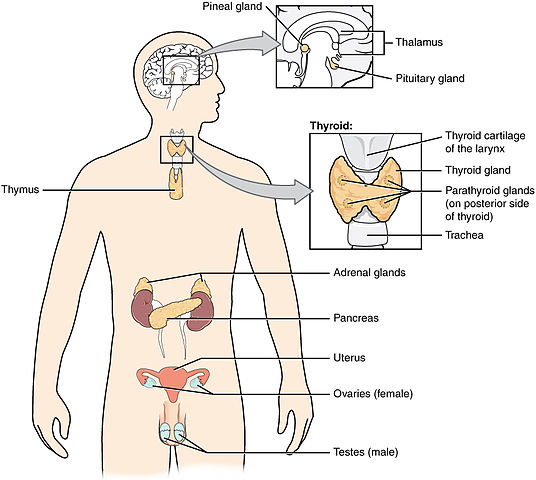An endocrinology specialist studies hormones and hormonal diseases, such as gland disorders or hormonal imbalances, in depth. Endocrinology is a subspecialty of internal medicine, and it can take a student up to 10 years to complete the necessary training pathway. The first stage requires the completion of a four-year course at medical school. This is then followed by a residency that can last up to four years before a candidate qualifies for accreditation.
Most endocrinologists will study a series of courses, which focus upon medical topics such as:
- clinical endocrinology
- endocrinology and genetics
- molecular endocrinology concepts
- endocrine tumours
Endocrine surgery demands the use of tools such as a surgical microscope and rapid pathological sections, and familiarity with techniques such as neuromonitoring. A specialist endocrine surgeon will generally be a doctor who has successfully completed a general surgery residency before going on to complete a further one or two-year fellowship study specifically focused on endocrine surgery.
Given the broad range of bodily systems upon which the endocrine network may exert an influence, endocrinology specialists will regularly collaborate with a number of other medical specialists, which may typically include disciplines such as:
- medical oncology, which can assist with cancers involving the endocrine system
- radiology, which employs relevant imaging techniques used for the diagnosis and treatment of endocrine disorders
- genetics, a discipline that can advise upon the impact of inherited conditions on the endocrine system
- endocrine surgery, which can assist with the surgical removal or treatment of pituitary, thyroid and adrenal tumours

Some of the many different types of endocrine disorders include:
- diabetes, which is a group of metabolic diseases resulting in high blood sugar levels over a prolonged period. The symptoms include frequent urination, as well as increased levels of thirst and hunger. When left untreated, a diabetic condition can lead to many complications.
- adrenal insufficiency, which occurs when the adrenal gland releases too little of the hormone cortisol (and sometimes aldosterone too). The symptoms can include weakness, stomach upsets, dehydration and changes to the skin.
- Cushing's disease, which is caused by the over-production of a pituitary gland hormone, which results in over-activity of the adrenal gland. High doses of corticosteroid medication can result in Cushing's syndrome, a related complaint.
- acromegaly (gigantism) and other growth hormone problems, which can occur when the pituitary gland produces excess amounts of growth hormone. This causes children’s bones and other body parts to grow at an unusually rapid rate. Should growth hormones be produced at insufficient levels, this can limit the height to which a child is able to grow.
- hyperthyroidism, which occurs when the thyroid gland produces excess amounts of thyroid hormone, causing weight loss, an increased heart rate, profuse sweating and nervousness. A frequent cause of hyperthyroidism is Grave's disease, which is an autoimmune disorder.
- hypothyroidism, which occurs when the thyroid gland fails to produce enough thyroid hormone, can cause fatigue, constipation, depression and dry skin. In addition, an underactive thyroid gland can also slow a child’s development.
- hypopituitarism, which happens when the pituitary gland releases very little hormone into the bloodstream, or none at all. This can be the result of a variety of different diseases. Women who suffer this condition may find that their menstrual periods stop.
- MEN I and MEN II (multiple endocrine neoplasia I and II), which are rare, genetic conditions that can be passed on through families. These endocrinal disorders can cause tumours in the parathyroid, adrenal and thyroid glands, leading to the production of excess amounts of hormones.
- PCOS (polycystic ovary syndrome), which occurs when the over-production of androgens disrupts the development of eggs and the normal process of their release from the female ovaries. PCOS is thus a primary cause of infertility.
- precocious puberty, which occurs when glands tell the body to release sex hormones too early in life, which causes the abnormally early onset of puberty.
In many instances, endocrine disorders may cause no symptoms at all, or at least be mild enough not to require treatment. When symptoms do occur, the usual cause is either the production of excess amounts of hormones, or else a hormone deficiency. These forms of endocrine disorder are typically treated by medications designed to address and correct any hormone imbalance, which can often be achieved by resorting to the use of synthetic hormone preparations.
However, with a condition such as prolactinoma (in which too much prolactin hormone is released into the blood), where a benign (non-cancerous) tumour is the reason for the symptoms, either surgery or radiation therapy is used to address the problem.
In some cases, the accurate diagnosis and correct treatment of the underlying cause of the endocrine disorder is all that is required to resolve the symptoms.









